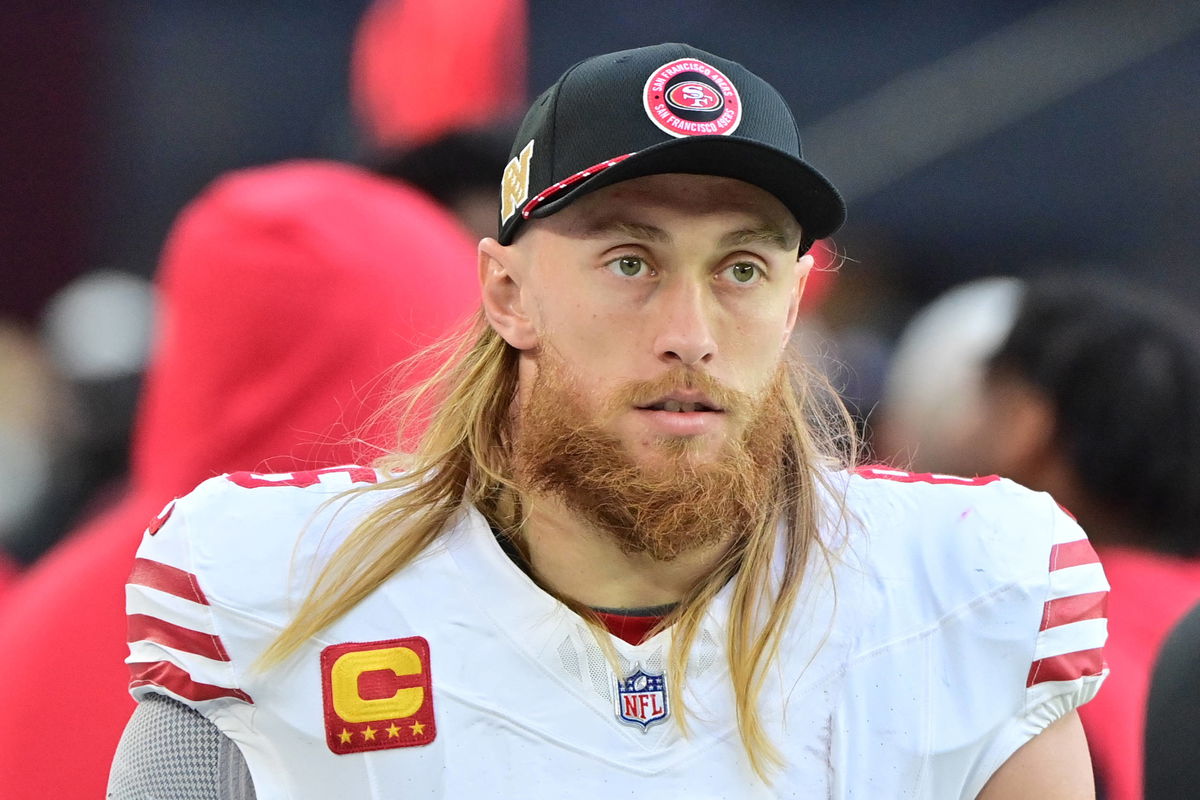
Imago
NFL, American Football Herren, USA San Francisco 49ers at Arizona Cardinals Jan 5, 2025 Glendale, Arizona, USA San Francisco 49ers tight end George Kittle 85 looks on in the first half against the Arizona Cardinals at State Farm Stadium. Glendale State Farm Stadium Arizona USA, EDITORIAL USE ONLY PUBLICATIONxINxGERxSUIxAUTxONLY Copyright: xMattxKartozianx 20250105_hlf_ak4_271

Imago
NFL, American Football Herren, USA San Francisco 49ers at Arizona Cardinals Jan 5, 2025 Glendale, Arizona, USA San Francisco 49ers tight end George Kittle 85 looks on in the first half against the Arizona Cardinals at State Farm Stadium. Glendale State Farm Stadium Arizona USA, EDITORIAL USE ONLY PUBLICATIONxINxGERxSUIxAUTxONLY Copyright: xMattxKartozianx 20250105_hlf_ak4_271
They called him the heartbeat of the offense, the man who could turn a short crossing route into a 40-yard explosion, the tight end who played like a wideout and blocked like a lineman. George Kittle‘s laugh fills rooms. His energy animates practice. He has built a career on being reliably involved: in the moment, in the locker room, and on the stat sheet. He holds the San Francisco 49ers‘ franchise records for most receptions and receiving yards by a tight end. But that same hunger, and the optics of him continuing to lead the team in receiving production, is suddenly being read as a warning sign, not a blessing.
Watch What’s Trending Now!
Kyle Shanahan prizes offensive multiplicity. He wants mismatches, diversity of weapons, and game plans that make defenses pick their poison. Kittle has always been a trusted chess piece in that design, but if the offense funnels through him by necessity rather than by choice, it signals a lack of balance. Even in a down 2024 season for San Francisco, a team that stumbled to 6-11 after a Super Bowl run the year before, Kittle was as steady as ever: 78 catches, 1,106 yards, and eight touchdowns. Those are elite numbers for a tight end, but that’s where the so-called “trust” question comes in: not that Shanahan doesn’t believe in Kittle, but that he might feel compelled to shift targets elsewhere to avoid over-reliance, protecting the scheme’s long-term effectiveness.
Insider Matt Steinmetz wasn’t a put-down of Kittle’s talent, far from it, but a critique of team balance. Kittle outpaced the team’s receiving corps, shouldering much of the load amid injuries and inconsistent production elsewhere. That kind of dominance can cast a shadow. Kyle Shanahan thrives on mismatches and creativity, motion and formation shifts that give multiple threat space to operate. If defenses zero in on Kittle and he still comes out on top, Shanahan must, by design, pivot. It’s not about doubting Kittle; it’s about preserving the offense’s unpredictability and competitive edge.
ADVERTISEMENT
Perhaps that is what Steinmetz emphasized when in conversation with 95.7 The Game. “If George Kittle leads the 49ers in receiving yards and touchdowns, the 49ers will not have had a good year. They won’t make the playoffs.” Fans recognize that, too. In a recent FanDuel/SB Nation poll asking who’d lead the team in receiving touchdowns in 2025, 50% picked Kittle, even with Brandon Aiyuk expected to miss time due to injury. This shows both the faith in Kittle’s consistency and concern about offensive depth.
“If George Kittle leads the 49ers in receiving yards and touchdowns, the 49ers will not have had a good year. They won’t make the playoffs.”
–@Steinmetzsports via @SteinyGuru957
🎧https://t.co/M3JZX7owJc pic.twitter.com/UfSJKM3KJx
— 95.7 The Game (@957thegame) August 8, 2025
And yet, just as the conversation about Kittle’s production and Shanahan’s trust began to gain traction, a completely different storyline stole the spotlight: one that had nothing to do with playbooks or passing charts.
ADVERTISEMENT
Can Kyle Shanahan trust George Kittle after his retirement comments?
It started with a league memo about smelling salts, spiraled into a misinterpreted ban, and ended with George Kittle joking that he might retire over it. In true Kittle fashion, the moment was equal parts comic relief and viral headline. Right on the brink of preseason, reports spread that smelling salts: those quick-hit ammonia inhalants players use to jolt themselves before a play, had been banned. The truth, however, was more nuanced: NFL teams can no longer provide them, but players can still bring their own stash.
ADVERTISEMENT
Before the clarification landed, George Kittle leaned into the confusion, telling reporters that if salts were truly gone, he might “consider retirement.” The comment, obviously tongue-in-cheek, was vintage Kittle. He’s known for his humor, offbeat energy, and ability to turn a minor rule change into a full-blown viral moment. It also reminded everyone that Kittle isn’t just a statistical leader; he’s a culture driver in the locker room and a face of the franchise off the field.
Then the truth came out, the NFL confirmed the news itself as the NFLPA memo said, “To clarify, this policy does not prohibit player use of these substances, but rather it restricts clubs from providing or supplying them in any form. The NFL has confirmed this to us.” The science behind it isn’t complicated. The ammonia gas irritates the nasal membranes, triggering a reflex that boosts breathing and heart rate. That spike can keep a person from fainting, and, as NFL linemen and linebackers will attest, can provide a sudden burst of intensity before a block or tackle. But the league pointed to an FDA warning: ammonia inhalants can mask concussion symptoms and have not been proven safe or effective as an energy booster. In other words, the very thing that can fire a player up can also hide the signals trainers need to see.
Top Stories
NFL Makes Punishment Decision on Sam Darnold’s Seahawks After NFC Conference Championship Win
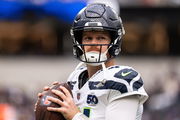
Bills Make Final Decision on Firing Sean McDermott’s Staff as Joe Brady Demands Major Changes From Josh Allen & Co.
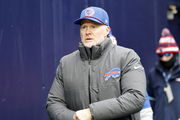
Giants Co-Owner Steve Tisch Issues Public Statement After Being Named In Jeffrey Epstein Files
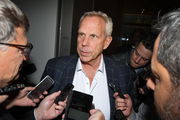
Andy Reid Risks Losing Out on Ideal Travis Kelce Successor Amid Chiefs TE’s Retirement Buzz
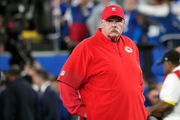
Chris Jones Rejects NFL Honor as Chiefs Receive Double Pro Bowl News
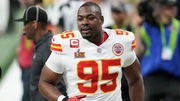
As the LA Times’ Steve Henson wrote, “Maybe NFL officials figure that by no longer supplying AIs and forcing players to bring their own batch to games, their liability in case of concussions or other medical complications is reduced.” Now in a new season, George Kittle remains both the 49ers’ ultimate safety net and a potential signal of imbalance in Kyle Shanahan’s offense. If he leads in every receiving category, it may mean others aren’t producing. Off the field, his joking ‘retirement’ over smelling salts showed the personality that keeps him in the spotlight. Balancing his production and persona will be key if San Francisco hopes to turn headlines into playoff wins.
ADVERTISEMENT
ADVERTISEMENT
ADVERTISEMENT
ADVERTISEMENT
.png)
.png)
.png)



